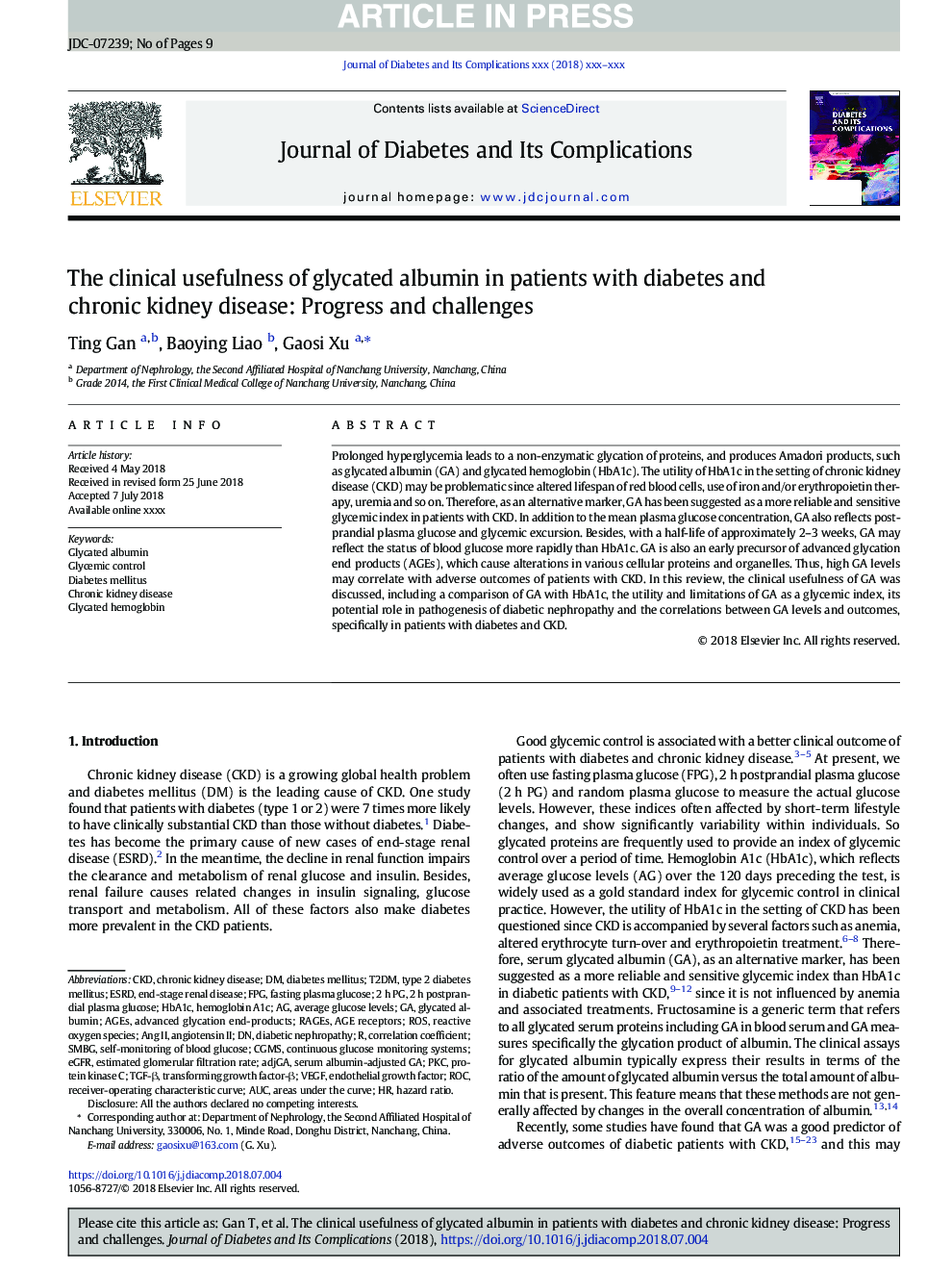| Article ID | Journal | Published Year | Pages | File Type |
|---|---|---|---|---|
| 8631922 | Journal of Diabetes and its Complications | 2018 | 9 Pages |
Abstract
Prolonged hyperglycemia leads to a non-enzymatic glycation of proteins, and produces Amadori products, such as glycated albumin (GA) and glycated hemoglobin (HbA1c). The utility of HbA1c in the setting of chronic kidney disease (CKD) may be problematic since altered lifespan of red blood cells, use of iron and/or erythropoietin therapy, uremia and so on. Therefore, as an alternative marker, GA has been suggested as a more reliable and sensitive glycemic index in patients with CKD. In addition to the mean plasma glucose concentration, GA also reflects postprandial plasma glucose and glycemic excursion. Besides, with a half-life of approximately 2-3â¯weeks, GA may reflect the status of blood glucose more rapidly than HbA1c. GA is also an early precursor of advanced glycation end products (AGEs), which cause alterations in various cellular proteins and organelles. Thus, high GA levels may correlate with adverse outcomes of patients with CKD. In this review, the clinical usefulness of GA was discussed, including a comparison of GA with HbA1c, the utility and limitations of GA as a glycemic index, its potential role in pathogenesis of diabetic nephropathy and the correlations between GA levels and outcomes, specifically in patients with diabetes and CKD.
Keywords
EGFRTGF-βRAGEsCGMSSMBGT2DMHbA1cFPGPKCAGEsROCAUCROSGlycated albuminAngiotensin IIchronic kidney diseaseESRD یا end stage renal diseaseEnd-stage renal diseasetransforming growth factor-βSelf-monitoring of blood glucoseAng IIDiabetes mellitusType 2 diabetes mellitusContinuous glucose monitoring systemsCorrelation coefficientEndothelial growth factorVascular Endothelial Growth Factor (VEGF)Fasting plasma glucoseadvanced glycation end-productsAreas under the curveReceiver-operating characteristic curveestimated glomerular filtration rateCKDhazard ratioDiabetic nephropathyHemoglobin A1cGlycated hemoglobinProtein kinase CGlycemic controlReactive oxygen species
Related Topics
Life Sciences
Biochemistry, Genetics and Molecular Biology
Endocrinology
Authors
Ting Gan, Baoying Liao, Gaosi Xu,
